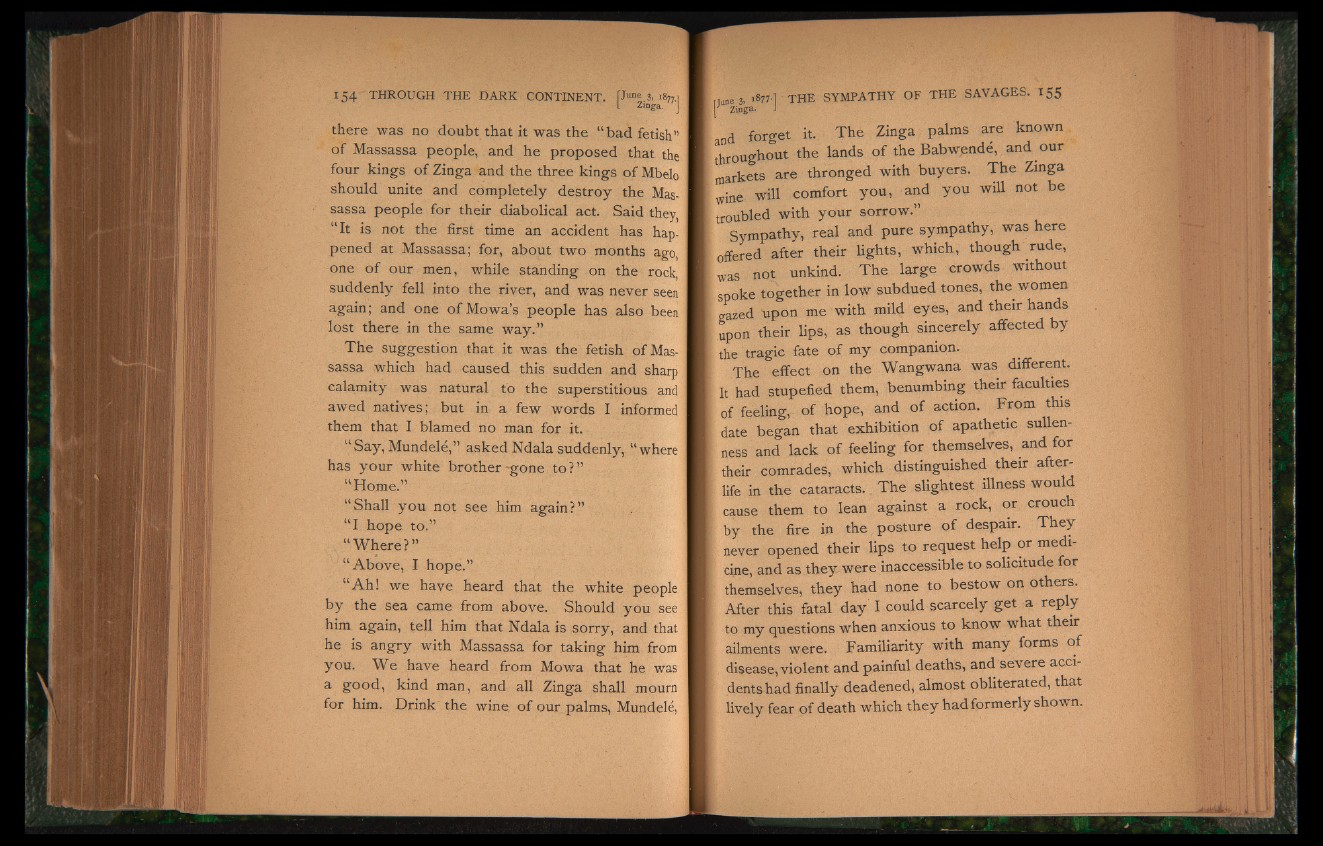
there was no doubt that it was the “ bad fetish”
of Massassa people, and he proposed that the
four kings of Zinga and the three kings of Mbelo
should unite and completely destroy the Massassa
people for their diabolical act. Said they,
“ It is not the first time an accident has happened
at Massassa; for, about two months ago,
one of our men, while standing on the rock
suddenly fell into the river, and was never seen
again; and one ofMowa’s people has also been
lost there in the same way.”
The suggestion that it was the fetish of Massassa
which had caused this sudden and sharp
calamity was natural to the superstitious and
awed natives; but in a few words I informed
them that I blamed no man for it.
“ Say, Mundele,” asked Ndala suddenly, “ where
has your white brother’gone to?”
“Home.”
“ Shall you not see him again?”
“ I. hope to.”
“Where?”
“ Above, I hope.”
“Ah! we have heard that the white people
by the sea came from above. Should you see
him again, tell him that Ndala is sorry, and that
he is angry with Massassa for taking him from
you. We have heard from Mowa that he was
a good, kind man, and all Zinga shall mourn
for him. Drink the wine, of our palms, Mundele,
rlune 3, 1877-1 THE SYMPATHY OF THE SAVAGES. 155
[J Zinga- J
nd forget it. The Zinga palms are known
throughout the lands of the Babw.endé, and our
markets are thronged with buyers. The Zinga
wine will comfort you, and you will not be
troubled with your sorrow.”
Sympathy, real and pure sympathy, was here
offered after their lights, which, though rude,
was not unkind. The l a r g e crowds without
spoke together in low subdued tones, the women
gazed upon me with mild eyes, and their hands
upon their lips, as though sincerely affected by
the tragic fate of my companion.
The effect on the Wangwana was different.
It had stupefied them, benumbing their faculties
of feeling, of hope, and of action. From this
date began that exhibition of apathetic sullenness
and lack of feeling for themselves, and for
their comrades, which distinguished their afterlife
in the cataracts., The slightest illness would
cause them to lean against a rock, or crouch
by the fire in the posture of despair. They
never opened their lips to request help or medicine,
and as they.were inaccessible to solicitude for
themselves, they had none to bestow on others.
After this fatal day I could scarcely get a reply
to my questions when anxious to know what their
ailments were. Familiarity with many forms of
disease, violent and painful deaths, and severe açci
dents had finally deadened, almost obliterated, that
lively fear of death which they had formerly shown.